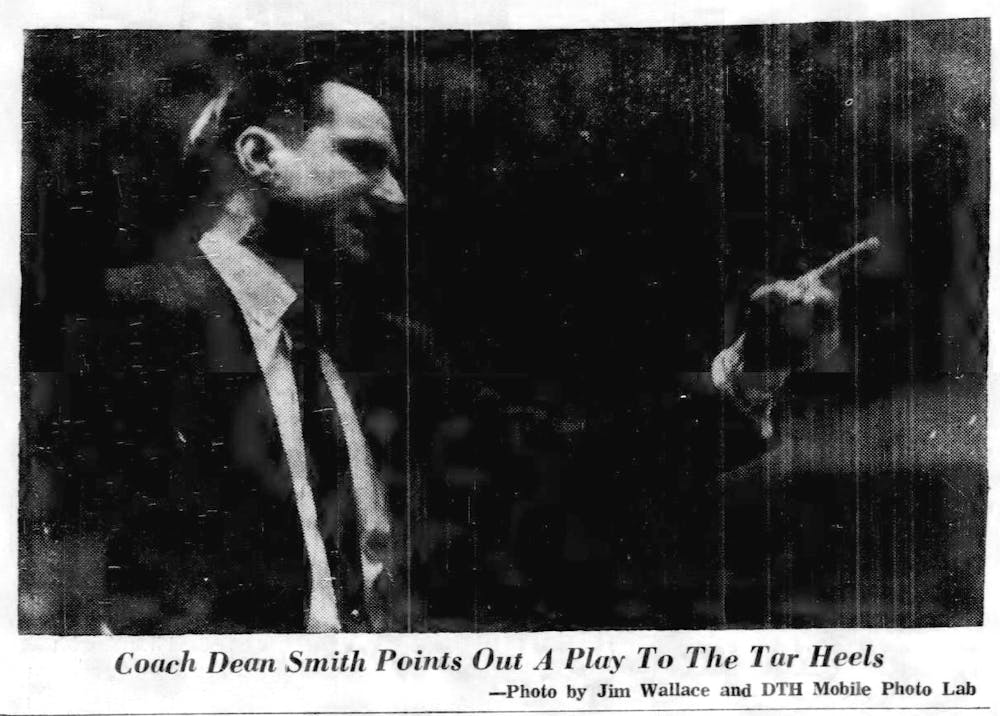Largely forgotten by fans of the North Carolina men’s basketball team, Dean Smith’s hanging in effigy serves as a reminder that motivation can come from the most unlikely places.
The Jan. 9, 1965 copy of The Daily Tar Heel contained advertisements for showings of "Sex and the Single Girl," starring Tony Curtis and Natalie Wood, at the Varsity Theater, a recent "Peanuts" comic, a crossword puzzle and a story about Daniel K. Moore being sworn in as North Carolina’s 66th governor — typical stories and advertisements for a college newspaper at the time.
What readers may not have expected was an editorial denouncing the actions of a group of students who hung an effigy of head men’s basketball coach Dean Smith. The incident was brought up in an editorial in the DTH three days after it happened.
“To protest a bad basketball club is one thing, but to do it in such a cowardly underhanded manner is another,” the editorial read. “The team needs our support. It is the only team we have, and it will not change personnel before the year is out.”
That copy of the DTH contains one of the few documentations of the effigy incident that mystified UNC students during that winter and beyond.
On Jan. 6, the basketball team rolled into Chapel Hill on a bus back from Winston-Salem after suffering a 107-85 demolition at the hands of the Demon Deacons. When the bus pulled in front of Woollen Gymnasium, it was met with an effigy of head coach Dean Smith, then in just his fourth year as UNC’s head coach, hanging from a tree outside of the building.
“Dean Smith was hanging in effigy and half of us didn't realize what the devil that was and what it meant,” Billy Cunningham, a senior on that 1965 team, said. “When we realized, it was very upsetting, and myself and my teammates went out and pulled it down. We felt, if nothing else, it wasn't the coach's fault we lost. All the losing was due to the way we were playing.”
Peter Gammons, a DTH sports reporter who was on the bus, recalled players shouting for the bus to stop when they saw the effigy.
“I remember it was so bad that I didn’t have to haul out my typewriter and do a sidebar,” Gammons told the DTH via email.



